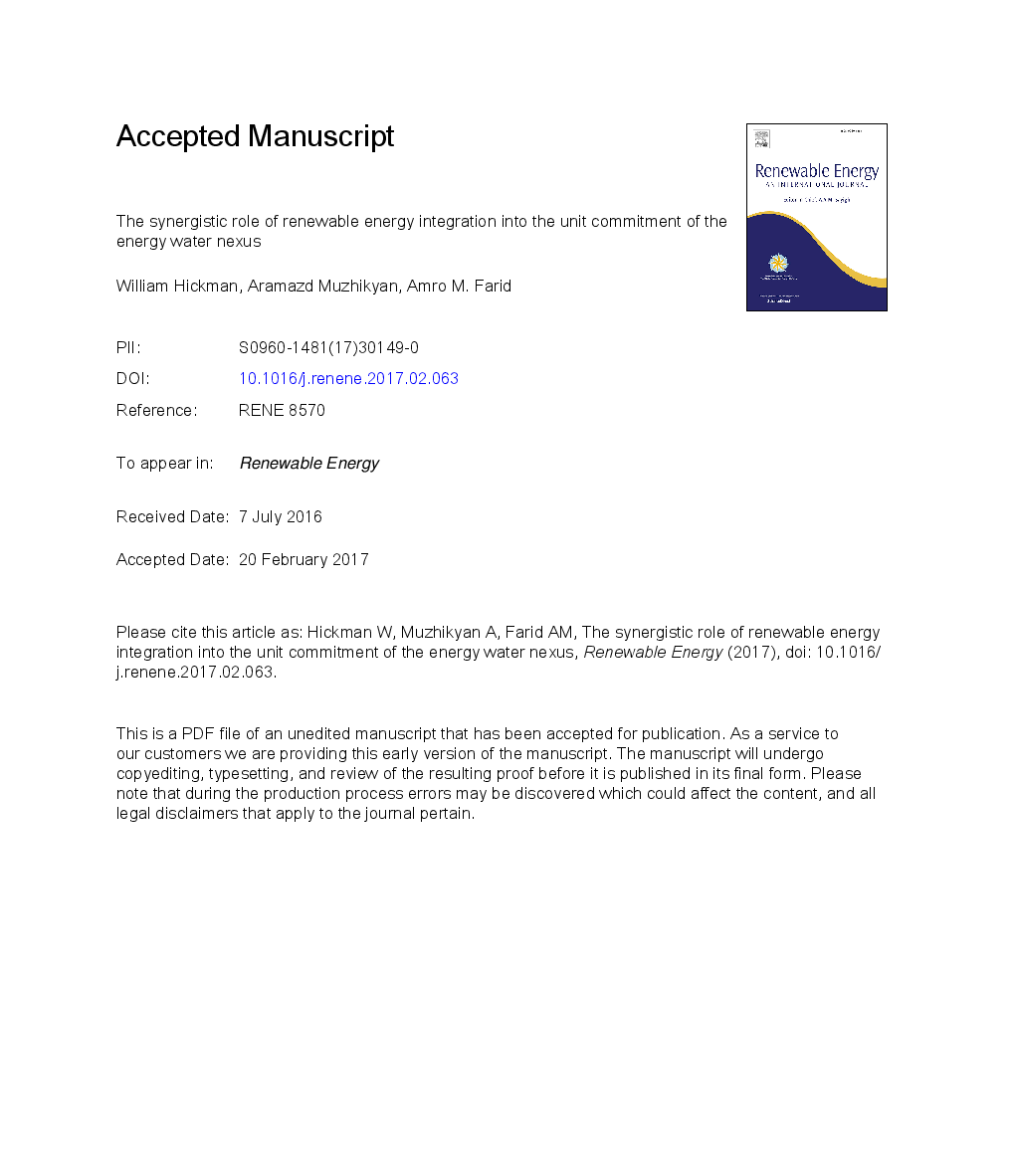ترجمه فارسی عنوان مقاله
نقش هم افزایی انرژی مجتمع انرژی تجدید پذیر در تعهد واحد ارتباطات انرژی آب
عنوان انگلیسی
The synergistic role of renewable energy integration into the unit commitment of the energy water nexus
| کد مقاله | سال انتشار | تعداد صفحات مقاله انگلیسی |
|---|---|---|
| 141580 | 2017 | 24 صفحه PDF |
منبع

Publisher : Elsevier - Science Direct (الزویر - ساینس دایرکت)
Journal : Renewable Energy, Volume 108, August 2017, Pages 220-229
ترجمه کلمات کلیدی
رابطه انرژی و آب، انرژی تجدید پذیر، یکپارچگی انرژی قابل تجدید، نمک زدایی، ذخیره انرژی، تعهد واحد،
کلمات کلیدی انگلیسی
Energy-water nexus; Renewable energy; Renewable energy integration; Desalination; Energy storage; Unit commitment;

